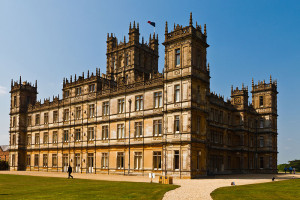 Last night we saw the final episode of Downton Abbey, the most popular drama in the history of PBS and a worldwide hit. Needless to say, Julian Fellowes, the creator and writer of Downton Abbey, tied up all the loose strings and brought us what we Romance authors and readers love–the happy ending.
Last night we saw the final episode of Downton Abbey, the most popular drama in the history of PBS and a worldwide hit. Needless to say, Julian Fellowes, the creator and writer of Downton Abbey, tied up all the loose strings and brought us what we Romance authors and readers love–the happy ending.
There won’t be any spoilers in this blog. Instead I want to talk about what this series can teach us about writing good historical romances.
Write great characters.
One of the things I love about Downton Abbey was the characters. The characters were vividly drawn and complicated. I know some would say the characters were stereotypes. Certainly they were recognizable in their roles, but each of them came with a few surprises and twists.
Include lots of conflict.
Downton Abbey thrived on conflict, both internal and external, mostly creating barriers to romance between the characters. Consider Lady Mary, whose class snobbery almost cost her each of her husbands. We tuned in to see if she’d choose love or her idea of what an aristocrat should be. Or think of the disasters that befell Edith every time she was close to having a happy ending to her romantic relationships.
 Make setting matter.
Make setting matter.
Downton Abbey was always lush in its settings and paid attention to small details in the setting. Think of all the scenes at meals and how the details of place settings and food and how it was served helped to make those scenes come alive. Think of how the costumes of Downton Abbey enthralled us. The costume designers tried to make the costumes as accurate as possible, down to the smallest detail.
Make the history matter.
From the very first episode, the real history of the times affected the story. The inciting incident was the sinking of the Titanic. Throughout, the history was woven in to the story.
Don’t show the dirty bits.
I don’t mean don’t show love scenes or naked ladies. I mean don’t show the stark reality of the time period. Downton Abbey certainly idealized aristocrats, making them seem more benevolent of their servants than most probably were. And the Crawleys were probably more flexible and forgiving than their real counterparts, but they were what we’d wish them to be. I don’t want to write about Regency sanitation or about the bugs and vermin that were prevalent in the time period. I’d rather create a world my readers and I would enjoy inhabiting.
Watch the pacing.
I’m sure those who watched the final two episodes were left with the impression that the story lines seemed rushed, as if Julian Fellowes was in a hurry to tie up all those loose strings. How often have you read books where the endings seemed rushed? It is a pitfall we need to avoid when we plot our books.
I am sad to see the series end. I find myself hoping the actors all find other good roles to play, as if they were their characters and I want them to go on living. I know it was little more than a costume drama/soap opera. But soap operas have fiercely loyal followers. I should be so lucky to have those numbers of loyal fans.
How about you? Did you watch Downton Abbey? What do you think made it such a popular series?

I actually felt the tears as I watched the final episode. It was a great end and am glad it’s wasn’t rushed. It was a wonderful family drama in which many viewers could watch the characters change due to circumstances, war, and just the changes in time over the years. But also getting a glimpse of how life was like up stairs and down stairs and how time tests and changes how both roles will play in the future. It’ll definitely be one of those shows we’ll remember forever, like BBC’s version of P&P with Colin Firth and North and South.
Yes! I agree. With everything you said!
I loved Downton Abbey. It finished here in Ireland at Christmas time. I was sad to see it end. I have to agree with what you say in your article Diane. It idealised the people in it. In real life a lot of the aristocrats were horrible to their staff and there would have been a lot of strife down stairs as well. We did see some of the staffs troubles but upstairs was a bit too good to be true. However, it was a brilliant series and I own them all on dvd. I’m promising myself a marathon re-watch one day soon!
Brilliant post, O Divine One! Great lessons for any romance writer. This one is going in the notebook.
I watched the first four seasons and own them on DVD, but I fell behind in watching and acquiring them. However, the good news is I can now add the rest of the seasons to my DVD library and enjoy them all at once. Perhaps as a reward for finishing my current WIP and getting it out into the world.
I have, of course, heard bits and pieces about what has happened since Season 4 from friends, but I am certain it will not diminish my enjoyment one bit.